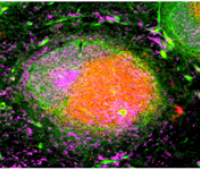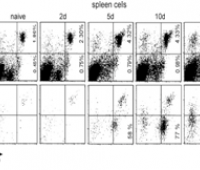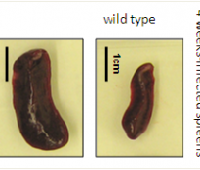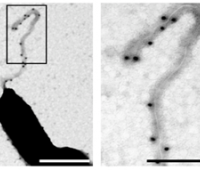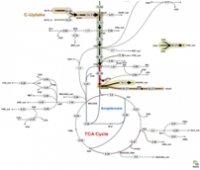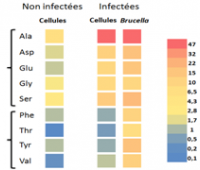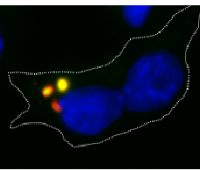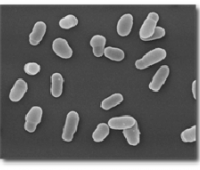Brucella spp. are characterized as stealthy pathogen that can persist lifelong in their hosts. Understanding the basis of this chronicity is the “quest for the holy Graal” in brucellosis research. From the Brucella side, our group is involved in identifying the virulence factors that are linked to this persistence and how they are regulated (see also research topic 1).
From the host side, in collaboration with Eric Muraille from the ULB we are characterizing the innate and adaptive immune response of mice infected by Brucella melitensis. We started to phenotype, by using cytometry and immunohistology, the cells infected and/or recruited during the process of infection. The use of both KO mice and of selected Brucella mutants allow us to dissect the interplay between this bacteria and its host.



